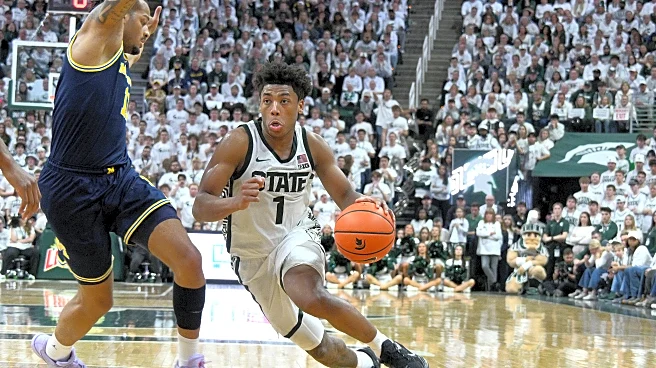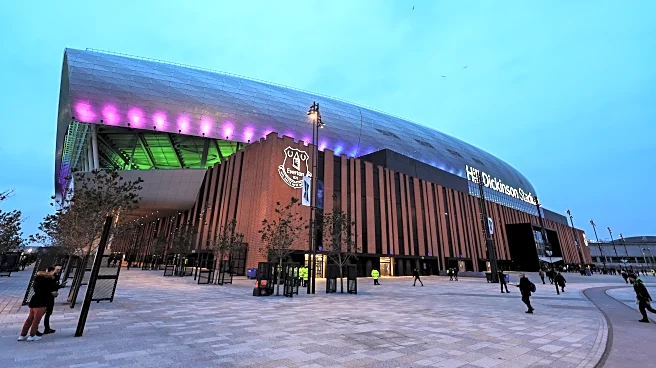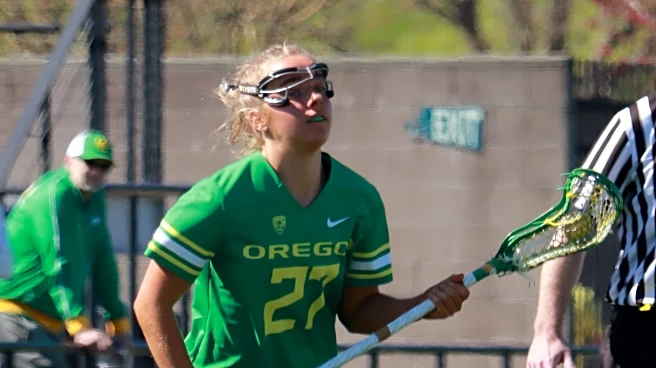What's Happening?
Pope Leo XIV, known for his progressive views and cultural engagement, has shared his top four favorite films in an interview with Variety. The films listed are 'It’s A Wonderful Life,' 'The Sound Of Music,'
'Ordinary People,' and 'La Vita È Bella (Life Is Beautiful).' These selections reflect themes of kindness and human values, aligning with Pope Leo's mission to foster dialogue between the Church and the world of cinema. The Pope, originally from Chicago and known for his love of local culture, is set to meet with several Hollywood celebrities, including Robert De Niro, Cate Blanchett, and Spike Lee, to discuss the intersection of artistic creativity and the Church's mission.
Why It's Important?
Pope Leo XIV's engagement with cinema highlights the Vatican's interest in using popular culture as a medium to promote human values and dialogue. By selecting films that emphasize compassion and resilience, the Pope underscores the potential of cinema to influence societal norms positively. This approach may encourage filmmakers to explore themes that align with ethical and moral values, potentially impacting the types of stories that are told in Hollywood. The Pope's interactions with prominent figures in the film industry could lead to collaborations that further integrate these values into mainstream media, influencing audiences worldwide.
What's Next?
Pope Leo XIV is scheduled to host a gathering with several notable actors and directors on November 15. This meeting aims to explore how the Church and the film industry can collaborate to promote human values through artistic expression. The outcomes of these discussions could lead to new initiatives or partnerships that leverage cinema as a tool for social change. The Pope's continued engagement with cultural figures may also inspire other religious leaders to consider similar approaches in their outreach efforts.
Beyond the Headlines
Pope Leo XIV's interest in cinema reflects a broader trend of religious institutions engaging with contemporary culture to remain relevant in modern society. This approach may challenge traditional perceptions of the Church's role, encouraging a more open and inclusive dialogue with diverse communities. The Pope's actions could inspire other religious leaders to adopt similar strategies, potentially leading to a shift in how religious messages are communicated and perceived in the public sphere.












